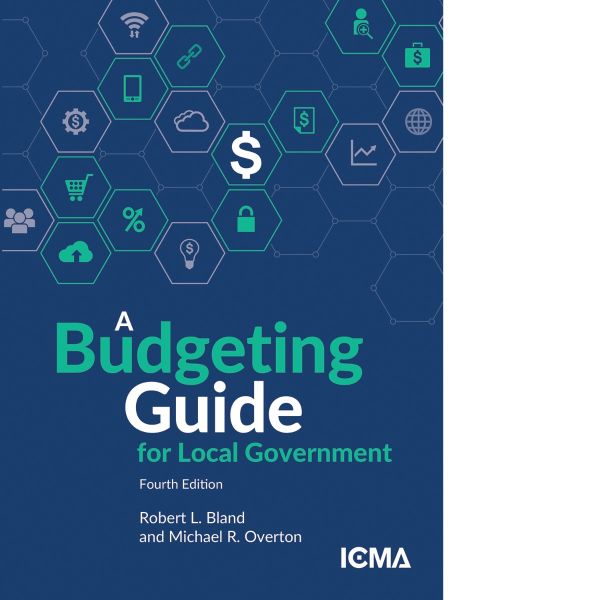
A Budgeting Guide for Local Government, Fourth Edition, written with managers, budget directors, and students of the profession in mind, offers a fresh and forward-looking examination of local government budgeting. Building on the success of the past editions, Professors Bob Bland and Michael Overton forge into new arenas that shape the “warp and woof ” of budgets and the policies and processes managers use to craft spending decisions.
This edition introduces several new topics. Bland and Overton highlight recent innovations in the ways that budget practices are used to allocate resources and to increase the productive use of those resources. Smart communities, or what the authors prefer to call technology-enhanced communities (TEC), are reshaping how governments work and consequently how they prepare their budgets. Given that over 84 percent of the cities in the United States have populations under 10,000, this edition has added a discussion of how smaller cities and counties adapt their budget practices to their institutional constraints.
An expansion on themes introduced in previous editions. As the public sector’s equivalent of a broker, the budget analyst brings together producers and consumers of local services, thereby transforming the budget process into a commodity exchange for those services. Although local governments have adopted more entrepreneurial methods of management, Bland and Overton provide the reasons why budgeting processes in the private sector cannot (and should not) be replicated in the public arena.
A call on local managers to embrace truth-in-budgeting—creating an organizational culture that ensures the budget office is a dependable source of credible analyses. Good budgeting effectively links inputs (capital and labor) with outcomes. As the authors note, divining the linkage between inputs and their impact on the community is the key budget problem that managers must wrestle with.
Practical guidance on how managers can effectively communicate budget information with their stakeholders and elevate the legitimacy of local government. Fiscal crises precipitated by natural or human actions impact budgets differently depending on their severity and duration.
Specific strategies for responding to and mitigating the range of crises that can potentially strike a local government. The greatest challenge for balancing local budgets remains finding sufficient revenues to fund the services communities expect. Bland and Overton skillfully navigate the complex terrain of revenue policy and administration.
Assessment of the impact of property tax exemptions on local budgets and the strategies used to compensate for the lost revenue. The authors provide an updated assessment of the general and excise sales taxes and the limited applicability of a local income tax. One of the bright spots for local revenues has been the steady shift toward charges on users of services.
An introduction to a typology of strategies for structuring prices that give managers a clear understanding of the tradeoffs that must be made when designing a price structure.